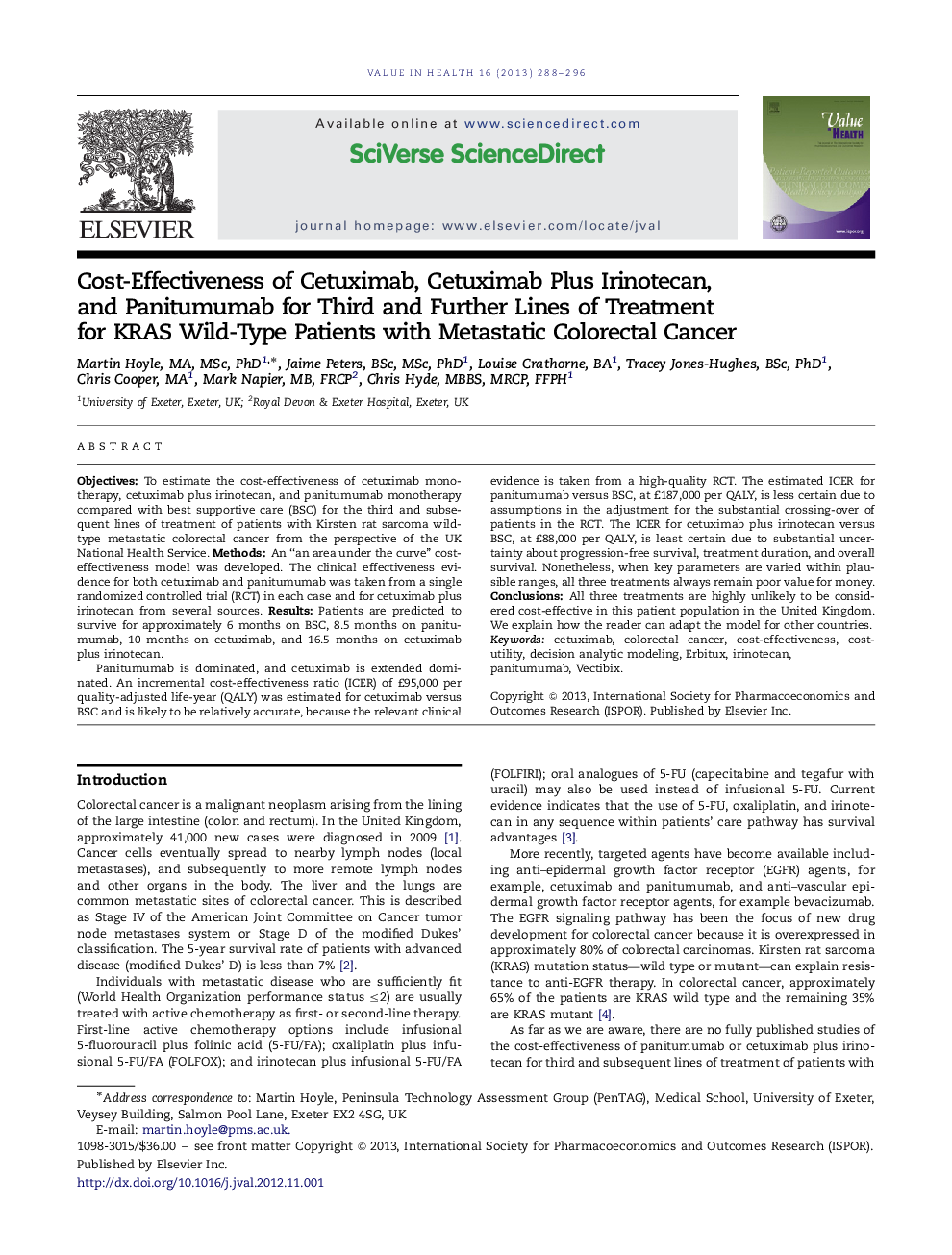| Article ID | Journal | Published Year | Pages | File Type |
|---|---|---|---|---|
| 989774 | Value in Health | 2013 | 9 Pages |
ObjectivesTo estimate the cost-effectiveness of cetuximab monotherapy, cetuximab plus irinotecan, and panitumumab monotherapy compared with best supportive care (BSC) for the third and subsequent lines of treatment of patients with Kirsten rat sarcoma wild-type metastatic colorectal cancer from the perspective of the UK National Health Service.MethodsAn “an area under the curve” cost-effectiveness model was developed. The clinical effectiveness evidence for both cetuximab and panitumumab was taken from a single randomized controlled trial (RCT) in each case and for cetuximab plus irinotecan from several sources.ResultsPatients are predicted to survive for approximately 6 months on BSC, 8.5 months on panitumumab, 10 months on cetuximab, and 16.5 months on cetuximab plus irinotecan.Panitumumab is dominated, and cetuximab is extended dominated. An incremental cost-effectiveness ratio (ICER) of £95,000 per quality-adjusted life-year (QALY) was estimated for cetuximab versus BSC and is likely to be relatively accurate, because the relevant clinical evidence is taken from a high-quality RCT. The estimated ICER for panitumumab versus BSC, at £187,000 per QALY, is less certain due to assumptions in the adjustment for the substantial crossing-over of patients in the RCT. The ICER for cetuximab plus irinotecan versus BSC, at £88,000 per QALY, is least certain due to substantial uncertainty about progression-free survival, treatment duration, and overall survival. Nonetheless, when key parameters are varied within plausible ranges, all three treatments always remain poor value for money.ConclusionsAll three treatments are highly unlikely to be considered cost-effective in this patient population in the United Kingdom. We explain how the reader can adapt the model for other countries.
